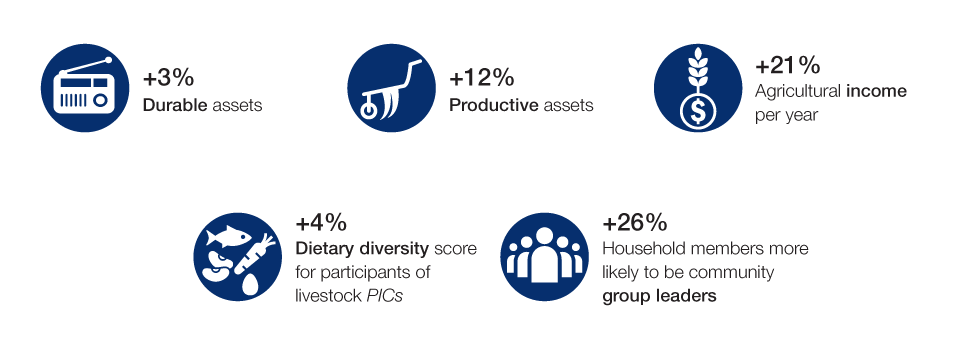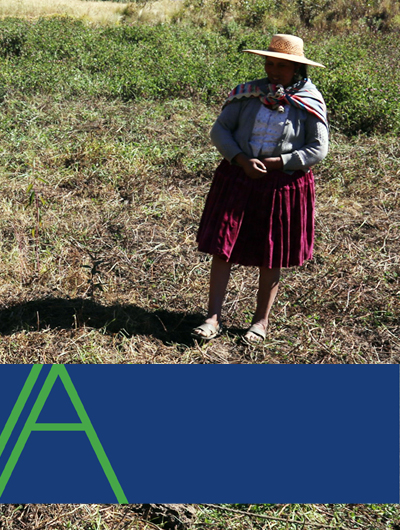Impact assessment: Bolivia, Plan VIDA-PEEP to Eradicate Extreme Poverty – Phase I
Impact assessment: Plan VIDA-PEEP to Eradicate Extreme Poverty – Phase I
From 2011 to 2016, the Plan VIDA project in Bolivia was implemented to address extreme poverty in rural areas by increasing the incomes and assets of rural people in the departments of Potosí and Cochabamba of the Plurinational State of Bolivia. The project adopted a participatory planning approach, whereby neighbouring communities formed groups and worked together on their own development pathways. The groups received financial support through Plan VIDA, and most decided to invest in better quality livestock and training in livestock care and reproductive strategies. Other community groups invested in crop production, water management or soil reclamation.
To understand the impact and sustainability of Plan VIDA, IFAD conducted a rigorous ex post impact assessment that focused on the project's financing to the community groups for livestock and agriculture projects. Household and community questionnaires, as well as semi-structured interviews were the main instruments used.
Key impact estimates
An impact estimate is calculated as the difference in mean outcomes between the treatment group (project participants) and the comparison group (non-participants). Plan VIDA made important contributions to increasing the assets and incomes of the most vulnerable rural people in Bolivia, with the strongest impacts seen among livestock farmers. Key figures include:

Main lessons
The evidence generated through this impact assessment has provided the following lessons for policy and practice:
- Positive impacts were stronger among farmers involved in activities that focused on livestock, likely due to the inter-linked nature of their activities. This suggests that more focused projects with less diversified development priorities and more inter-linked components may lead to higher impact overall.
- Supporting the supply of livestock sub products like milk and eggs, and smallholders’ ability to purchase them through increased income can positively contribute to diversifying their diets.
- The study found little or no impact on social capital indicators. This, coupled with qualitative evidence, suggests that in Bolivia where social relations are strong and community-driven development projects are a driving force for policy initiatives, social capital can be considered a contributor to rather than a result of project success.
